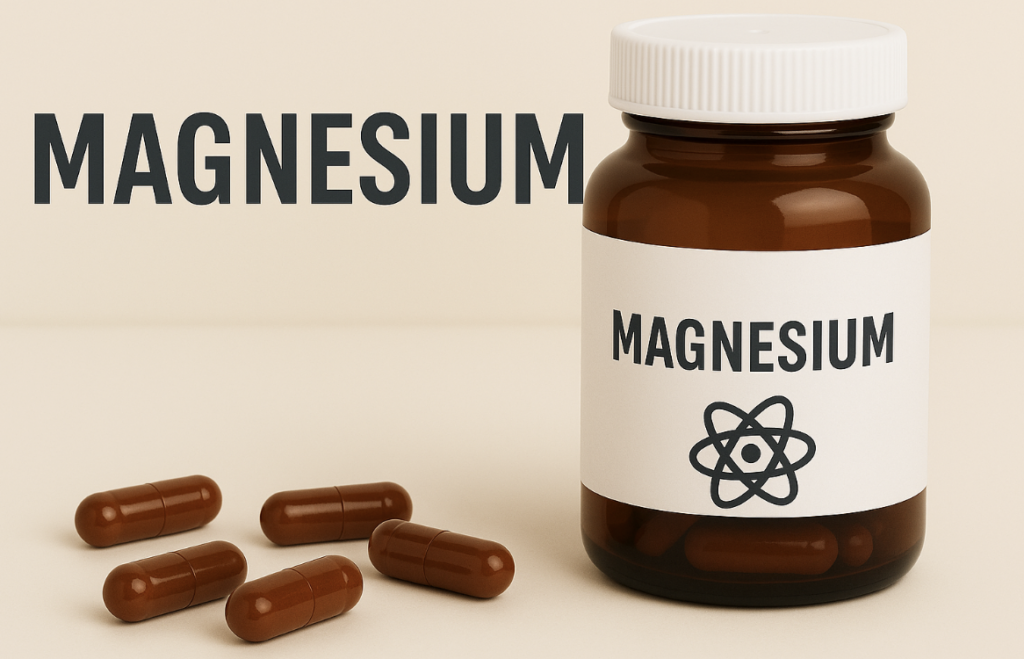If you’re struggling with poor sleep, anxiety, mood swings, or muscle cramps after 40, magnesium deficiency might be part of the problem. This essential mineral plays a role in over 300 enzyme reactions, yet many women—especially over 40—aren’t getting enough. From stress relief to hormonal balance, let’s explore how magnesium supports your health and which forms work best.
🧘♀️ 1. Why Magnesium Is Vital After 40
- Helps regulate cortisol and stress hormones
- Supports deep, restorative sleep cycles
- Aids in muscle relaxation, blood pressure, and bone strength
- Key for hormone-related issues like PMS, perimenopause, and migraines
💡 Magnesium also improves insulin sensitivity and reduces inflammation.
⚠️ 2. Common Signs of Magnesium Deficiency
- Trouble falling or staying asleep
- Muscle cramps or twitches
- Anxiety, irritability, or depression
- Fatigue, low energy, or headaches
💡 Digestive issues or certain medications (like PPIs or diuretics) can reduce magnesium levels.
💊 3. Best Forms of Magnesium for Women Over 40
- Magnesium glycinate: Gentle, calming—best for sleep and anxiety
- Magnesium citrate: Supports digestion and regularity
- Magnesium threonate: Crosses blood-brain barrier—great for cognition
- Magnesium malate: Supports energy and chronic pain
💡 Avoid magnesium oxide—it’s poorly absorbed and often causes GI upset.
🌿 4. How to Take Magnesium Effectively
- Best taken in the evening to support sleep and relaxation
- Start low (100–200 mg) and increase slowly to avoid loose stools
- Can be taken with or without food, but some forms absorb better with meals
🛑 Check with your doctor if you have kidney issues or take medications like blood pressure drugs.
🥦 5. Magnesium-Rich Foods to Add to Your Diet
- Dark leafy greens (spinach, Swiss chard)
- Pumpkin seeds, almonds, cashews
- Avocados, black beans, bananas
- Dark chocolate (at least 70% cacao)
💡 Whole foods are ideal, but supplements can help bridge the gap—especially under stress.
Magnesium is a game-changer for women over 40 facing sleep problems, stress, or hormone shifts. With the right form and dosage, this mineral can improve your quality of life—naturally. Whether you prefer food-based sources or a high-quality supplement, consistent intake can help you feel more balanced, rested, and energized.
Calcium Supplements for Women Over 40: Bone Strength, Muscle Function & Heart Health
Cleveland Clinic: Why Magnesium Matters for Women’s Health
